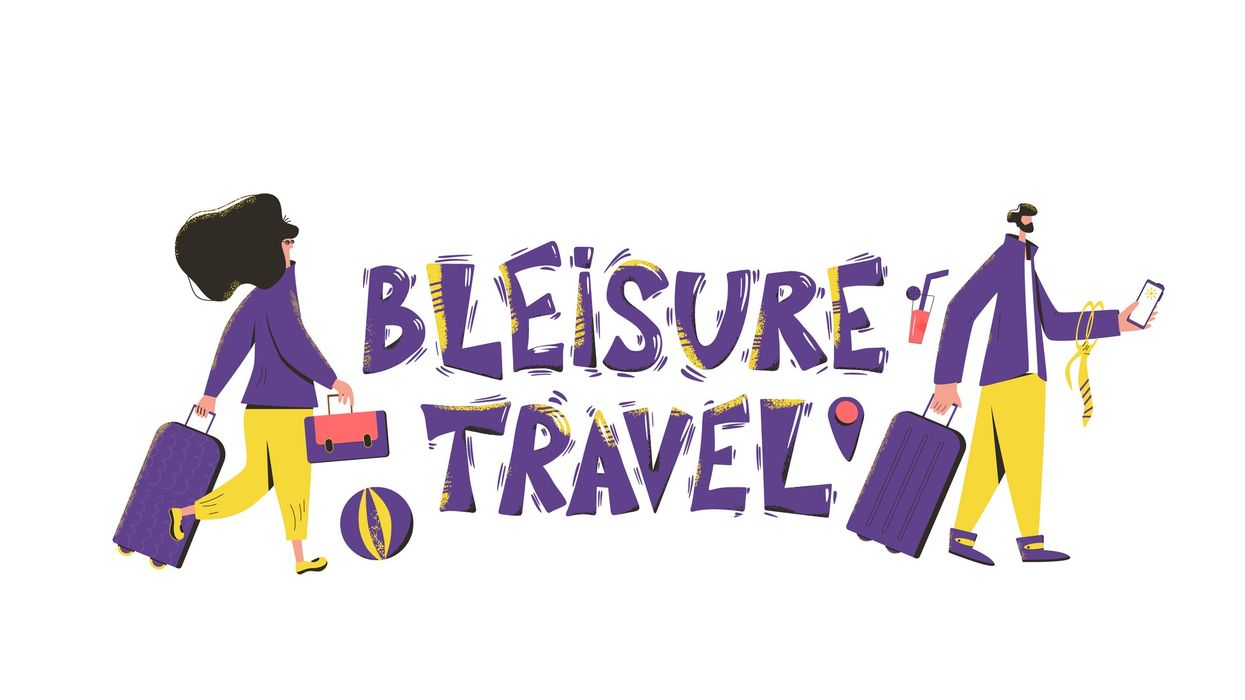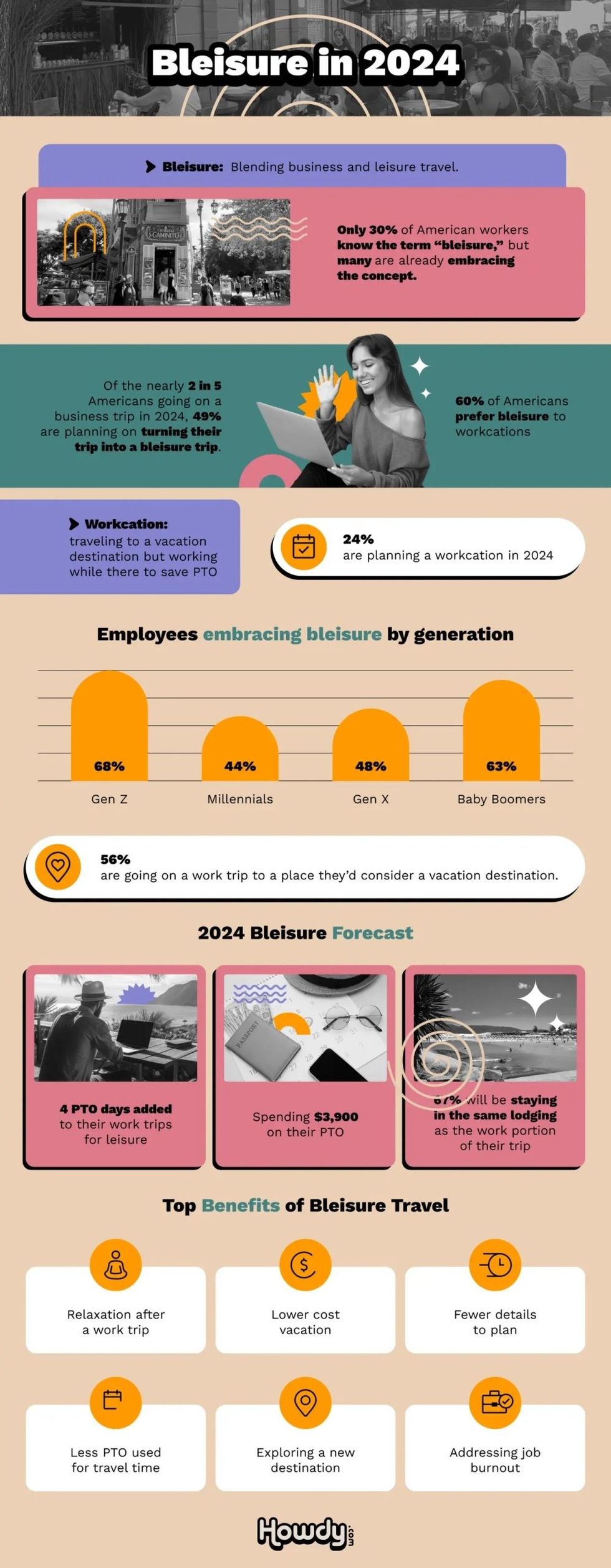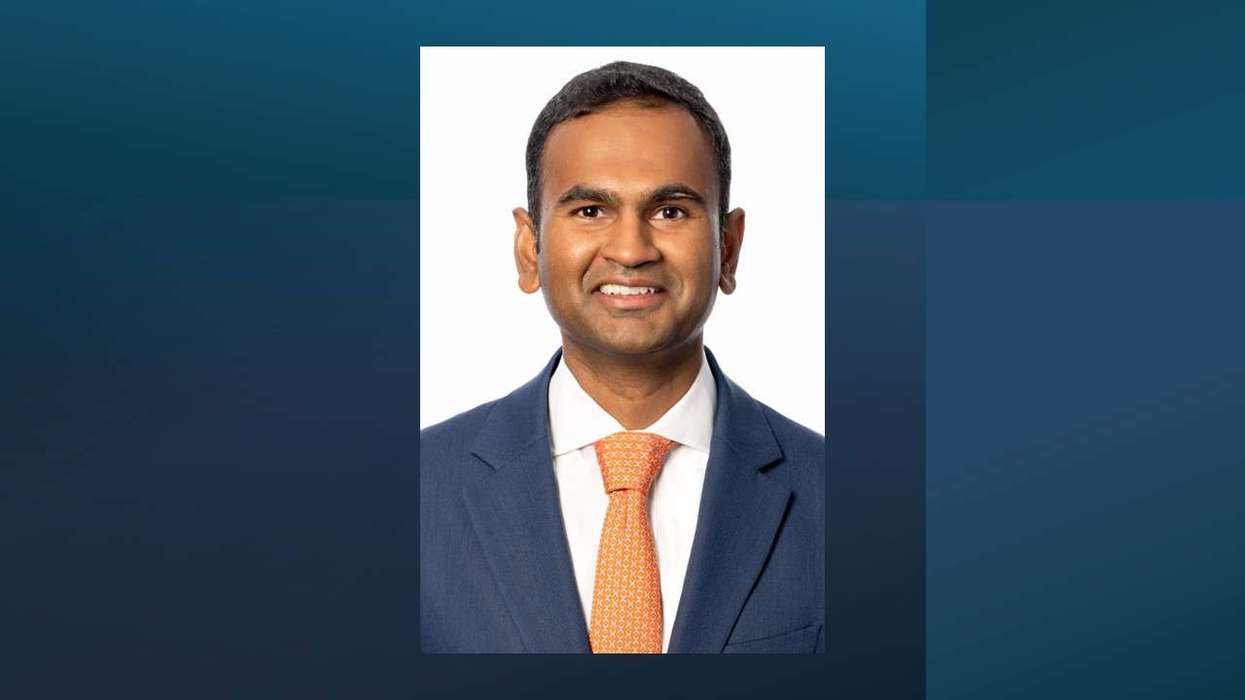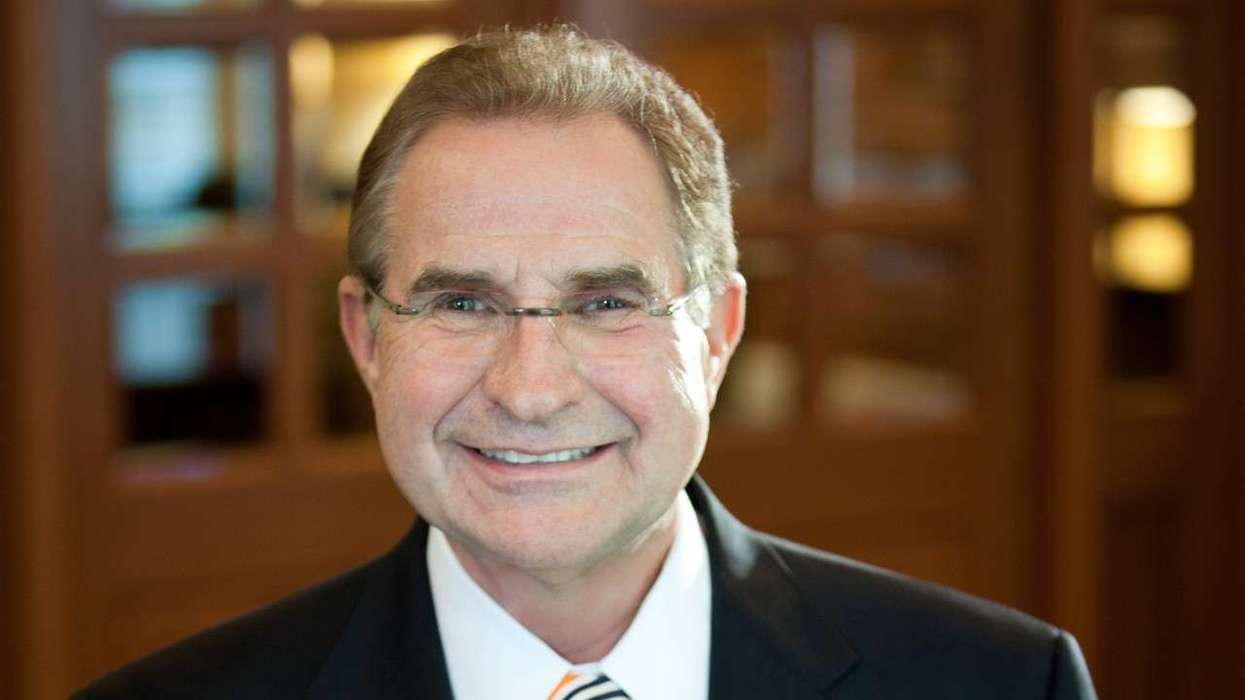OF THE TWO in five Americans going on business trips this year, 49 percent intend to turn it into a “bleisure” trip, according to a recent survey by Howdy.com. Bleisure is a blend of "business" and "leisure," differing from "workcations," where workers integrate vacation with work at a destination of their choice.
While about a quarter of survey respondents opt for workcations to save paid time off, 60 percent of American business travelers prefer bleisure trips. Approximately 64 percent of American workers attribute the rise of bleisure to improved work-life balance as business travel rebounds post-COVID-19. Despite only about 30 percent of workers being familiar with the term bleisure, many are embracing the concept, said Howdy.com, a talent sourcing firm based in Austin, Texas.
The Howdy.com survey of more than 1,000 full-time employees across the U.S., found that more than two-thirds of respondents would be attracted to jobs that encourage bleisure, while many suggest that companies should offer a "free day" on work trips to promote bleisure. The survey revealed that about 75 percent of respondents would be more inclined to collaborate with international teams if provided with increased bleisure travel opportunities.
Workers emphasize several benefits of bleisure travel, including post-work relaxation, reduced vacation costs, simplified planning, and decreased PTO requirements. On average, four PTO days are added to work trips for leisure, costing around $3,900, with 67 percent opting to stay at the same lodging used for work.
Business travel booming
Business travel is rebounding after the COVID-19 pandemic, Howdy.com said. In the past year, 41 percent of full-time American workers have traveled for work, with 80 percent of these trips being domestic, 14 percent a mix of domestic and international, and 6 percent solely international.
Workers traveled for business an average of twice in the past year, the survey found. Of these, one in five took time off from their work trip for tourism or relaxation. This trend is most popular among Gen Z, with 1 in 4 opting to skip work, compared to only 12 percent of Baby Boomers. While most workers enjoyed travel benefits such as round-trip airfare, lodging, food stipends, taxi stipends, and/or travel insurance, 17 percent still feel their companies don't cover all necessary expenses.
Full-time employees in America receive an average of 18 days of PTO but typically take only 15, resulting in an average of two vacations a year, the survey said. However, 22 percent of workers feel guilty taking time off work. Additionally, 32 percent have extended a past work trip with PTO, and many hope companies will encourage them to embrace vacation time, with 89 percent believing their company should offer a travel stipend.
An AHLA survey recently found that approximately 61 percent of Americans are planning overnight leisure trips in the next four months, with 34 percent expecting an increase compared to last year.







